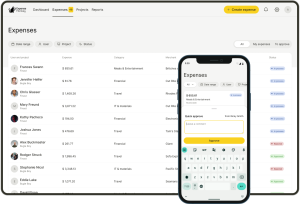Applying for a loan can be a bit intimidating, but it doesn’t have to be. If you know which loan application mistakes to avoid, it becomes easier to get approved.
A common slip-up is to take out too large a loan, hence going into unfavourable debt and in a difficult financial situation.
Not Taking the Time to Shop Around
When you need a loan, the process of applying can be daunting. You may be embarrassed about making the request. Even if you are confident, it represents a huge extra financial commitment, particularly since you would also be shopping around, trying to find a lender with the best rate. Borrowers commonly fail to read fine print before accepting loans, such as interest rates, fees, payback terms. It’s very important that both parties understand these things before providing loans at any cost. If you’re a borrower, however, and you apply to multiple lenders at once, it can be devastating to your credit score and limit the possibilities for your loan approval.
Not Taking the Time to Review Your Credit Report
This information about an applicants’s financial history and credit rating forms an important part of the loan application process. If a lender finds financial information that doesn’t appear to be true within the application form, then extra checks might be made, or interest rates charged on the loan will be higher or the loan might be refused altogether. Review your credit report thoroughly (including checking for errors) and make sure it refers to you only, contacting the agencies immediately if not. Also, ensure that all payments are being made on time to your creditors and lenders. If you have a low credit score, take steps to help it improve by reducing debt and contesting any inaccurate negative items you see on your public record. That will enhance your odds of loan approval and access to money when you need it.
Not Taking the Time to Review the Loan Terms and Conditions
Application procedures for loans can be tricky and confusing, and can require a great deal of thinking in order not to make any mistakes that could have serious implications on your financial future down the road. Hurrying through the procedure could create a host of problems with serious implications for your future financial stability. Often, the problem lies with the Idiot Borrower, who travels from branch to branch without reading and considering the loan terms and conditions, all the way down to the margin on the banked funds. The result can be devastating: unrealistic interest rates, ‘hidden’ fees not itemised in the loan contract, or even problems caused by the ‘skinny’ representation of the contract. When reviewing the terms and conditions of a loan, you need to understand each and every part of the fine print — such as how your credit history will be evaluated and any other fees that you could have to pay (for example, origination fees, application fees or prepayment penalties). Tracing through default provisions could have enormous ramifications on your credit history and whether you would be able to stay solvent and pay back.
Not Taking the Time to Gather the Necessary Documents
You will have to submit documents to prove your identity, your income, and the nature and extent of the assets you have banked or other secured loans in your name before any lender will even consider your loan application. Invest some time into gathering these documents early in the process, as you will save time and effort when shopping around for your loan. Borrowers should make it as easy as possible for lenders to read and identify everything on these documents. Inconsistencies in names, gaps in the information or the wrong kinds of documents can lead to suspicion on the part of lenders – possibly resulting in a delay or refusal of the loan application. To apply for a loan with most lenders, borrowers will need to prove where they live and, before signing, borrowers are encouraged to read their loan contract multiple times to understand all interest rates, fees and repayment terms that might have surprises in the future – especially the fine print that might spell out special exceptions your agreement could be subject to.
Not Taking the Time to Complete the Loan Application
It is wise to examine all terms and conditions prior to signing so there are no surprises. While inaccurate data would delay the processing of your application, accurate information – your credit history, for instance – can prevent you from getting a loan should the lenders see you as a high-risk borrower to review and correct any mistakes before applying for one. Others include pay stubs and tax returns for employees, or profit and loss statements for the self-employed; it can be helpful to have these files at the ready because all the documents can be processed more rapidly.












More Stories
Beyond Greenwashing: How Sustainable and ESG-Linked Loans Work for You and Your Business
Financial Wellness Programs and Their Impact on Employee Loan Access
Financing Alternative Education Paths: Your Guide to Paying for Bootcamps, Certifications, and More